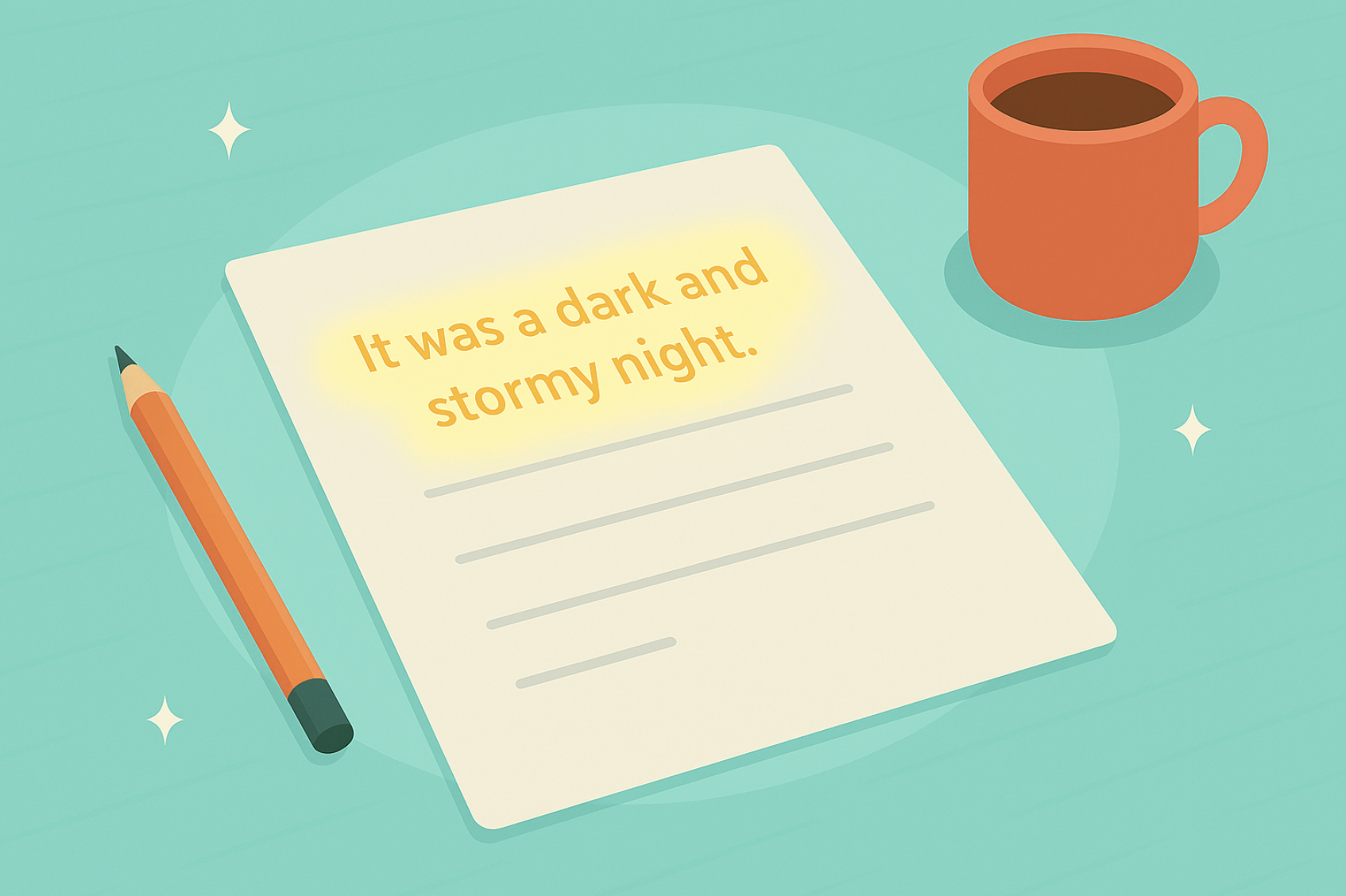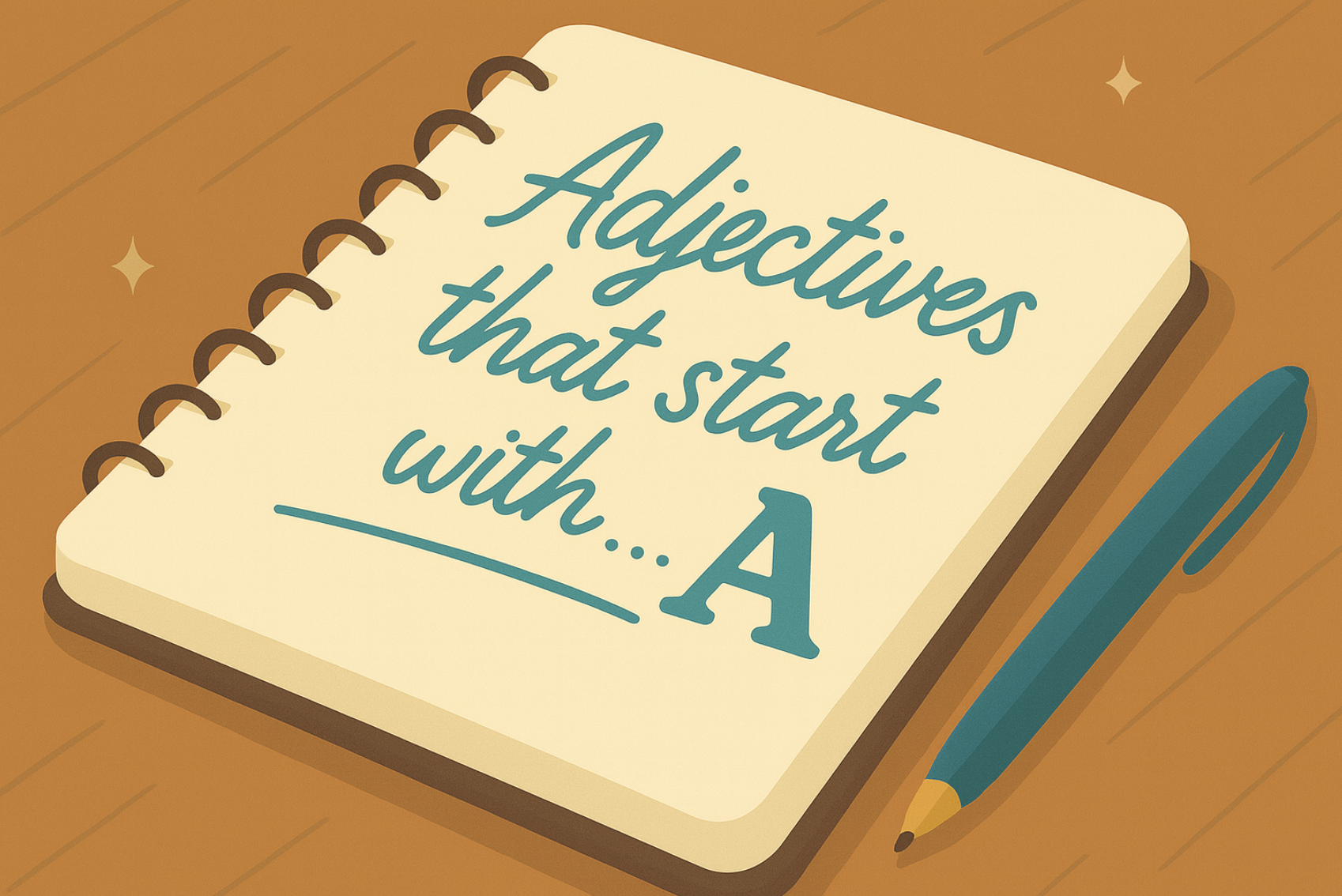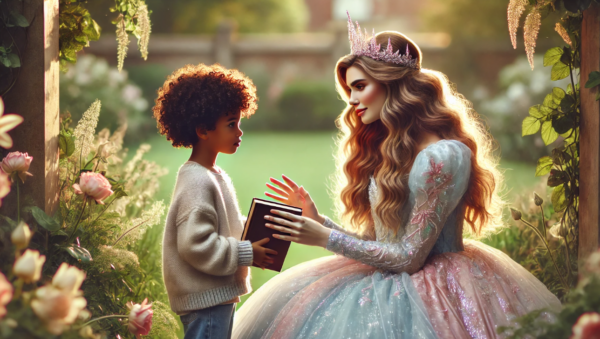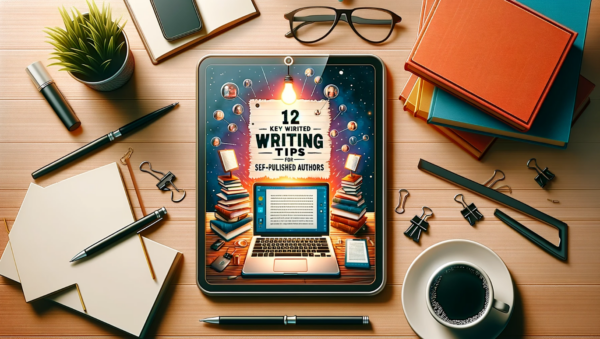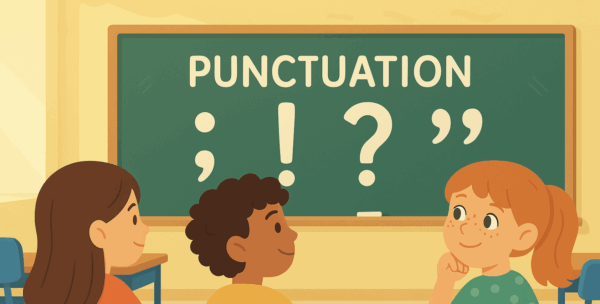Ever struggled to capture the perfect mood in your writing? You’re not alone! Whether you’re crafting a gripping novel, an academic essay, or just trying to sound more dramatic in your text messages, having the right list of moods in literature/mood words at your fingertips is a game-changer.
Mood isn’t just a background detail—it sets the entire tone of a story, pulling readers into a world that feels joyful, eerie, suspenseful, or downright melancholic. But let’s be real: sometimes, finding the right mood words feels like searching for a missing sock—frustrating, time-consuming, and occasionally leading to an existential crisis. That’s where this ultimate mood words list comes in.
From uplifting to unsettling, we’ve compiled an extensive collection of words to describe mood to help you create vivid, emotionally charged narratives. Whether you’re a seasoned author, a student deciphering literary texts, or just someone who wants to sound fancy when describing a rainy day—this guide has got you covered.

What Is a Mood Word?
A mood word is a term used to express the emotional atmosphere of a piece of writing. Whether in literature, poetry, or storytelling, mood words help set the scene, influence readers’ emotions, and shape their overall experience.
Think of mood as the invisible force behind a story—it can make a scene feel heartwarming, eerie, suspenseful, or even outright terrifying. Writers use mood words to subtly (or not-so-subtly) guide readers’ emotions, immersing them in the world they’ve created.
For example, consider the word “foreboding.” If a novel describes “dark clouds looming over a silent town,” the word foreboding enhances the sense of unease, signaling to readers that something ominous is about to happen.
Now, let’s explore a comprehensive mood words list to help you bring your writing to life!
Examples of Mood in Literature
Mood plays a crucial role in literature, shaping how readers experience a story. Whether it’s the eerie unease of a haunted house or the warm nostalgia of a childhood memory, mood words help create an emotional atmosphere that immerses the audience. Below are some examples of mood in literature, showcasing how authors use specific mood words to influence the reader’s emotions.
1. Dark & Foreboding Mood – Edgar Allan Poe’s “The Fall of the House of Usher”
“During the whole of a dull, dark, and soundless day in the autumn of the year, when the clouds hung oppressively low in the heavens…”
📖 Mood Words: ominous, eerie, oppressive, bleak
🔍 Effect: Poe’s word choice instantly sets a gloomy and foreboding mood, making the reader feel uneasy as if something dreadful is about to happen.
2. Hopeful & Inspiring Mood – Maya Angelou’s “I Know Why the Caged Bird Sings”
“The caged bird sings with a fearful trill of things unknown but longed for still.”
📖 Mood Words: hopeful, determined, uplifting, triumphant
🔍 Effect: Angelou creates a mood of hope and resilience, portraying the bird’s longing for freedom as a symbol of perseverance.
3. Romantic & Dreamy Mood – F. Scott Fitzgerald’s The Great Gatsby
“The exhilarating ripple of her voice was a wild tonic in the rain.”
📖 Mood Words: passionate, dreamy, enchanting, whimsical
🔍 Effect: Fitzgerald’s description of Daisy’s voice contributes to the romantic and mesmerizing mood of the novel, highlighting Gatsby’s infatuation.
4. Suspenseful & Tense Mood – Harper Lee’s To Kill a Mockingbird
“A shadow on the porch was still there. In the center of the street, the old dog stood, looking the way he had come.”
📖 Mood Words: tense, suspenseful, unnerving, alarming
🔍 Effect: Lee builds suspense through description, making readers anticipate what will happen next, keeping them on edge.
5. Cheerful & Lighthearted Mood – L.M. Montgomery’s Anne of Green Gables
“I’m so glad I live in a world where there are Octobers.”
📖 Mood Words: joyful, playful, warm, nostalgic
🔍 Effect: Montgomery’s writing creates a cheerful and uplifting mood, emphasizing Anne’s love for nature and simple pleasures.
6. Melancholic & Reflective Mood – William Shakespeare’s Hamlet
“To be, or not to be, that is the question.”
📖 Mood Words: sorrowful, contemplative, brooding, melancholic
🔍 Effect: Shakespeare establishes a deeply reflective and melancholic mood as Hamlet questions existence and fate.
These examples illustrate how authors carefully choose mood words to guide the reader’s emotions. Whether through vivid descriptions, dialogue, or setting, mood transforms storytelling into an immersive experience.
Now, let’s explore 100+ mood words with definitions to help you create powerful moods in your writing! 🚀
💡Did you know: Mood Words Affect Reader Emotions – A well-placed word like ominous or cheerful can make readers feel suspense or joy instantly.
Mood Words Literature: 100+ Mood Words List with Definitions and Examples
Mood is the emotional backbone of any story, shaping how readers feel as they move through the pages. Whether you’re aiming for a joyful, suspenseful, eerie, or melancholic atmosphere, choosing the right mood words can make all the difference.
This 100+ list of mood words with definitions will help you bring your writing to life, whether you’re crafting a novel, analyzing literature, or just expanding your vocabulary. From lighthearted and uplifting to dark and unsettling, this collection covers a wide range of moods to suit any scene or story.
Let’s dive in and explore the power of mood words!
Positive Mood Words
- Affectionate
Definition: Showing love and care.
Example: She gave her affectionate mother a big hug. - Amazed
Definition: Filled with wonder or great surprise.
Example: The audience was amazed by the magician’s tricks. - Amicable
Definition: Friendly and easy to get along with.
Example: John is always amicable, making friends wherever he goes. - Appreciative
Definition: Feeling or showing gratitude.
Example: She was appreciative of the kindness shown by her coworkers. - Awe-struck
Definition: Filled with amazement and admiration.
Example: She was awe-struck by the breathtaking view of the mountains. - Blissful
Definition: Extremely happy and content.
Example: Their honeymoon was a blissful escape from reality. - Bold
Definition: Showing confidence and courage.
Example: The bold journalist asked the difficult questions. - Brave
Definition: Ready to face challenges without fear.
Example: The brave firefighter entered the burning building to save a child. - Brilliant
Definition: Exceptionally intelligent or talented.
Example: The brilliant scientist made a groundbreaking discovery. - Buoyant
Definition: Cheerful and optimistic.
Example: His buoyant attitude helped the team stay positive. - Calm
Definition: Peaceful and untroubled.
Example: She remained calm despite the stressful situation. - Carefree
Definition: Free from worries or concerns.
Example: His carefree attitude made him enjoyable to be around. - Cheerful
Definition: Noticeably happy and optimistic.
Example: His cheerful personality made him well-liked by everyone. - Compassionate
Definition: Showing concern and care for others.
Example: She is compassionate, always looking out for others. - Confident
Definition: Feeling self-assured and capable.
Example: He walked onto the stage with a confident smile. - Content
Definition: Satisfied and at ease.
Example: She felt content after finishing her book. - Courageous
Definition: Willing to face danger or take risks.
Example: The courageous soldier saved his comrades. - Creative
Definition: Able to make new things or think outside the box.
Example: Mark is creative and often comes up with innovative ideas. - Curious
Definition: Eager to learn or explore.
Example: The curious child asked endless questions. - Delighted
Definition: Extremely pleased and happy.
Example: She was delighted to receive the award. - Determined
Definition: Having a firm purpose or goal.
Example: He was determined to complete the marathon. - Ecstatic
Definition: Overwhelmed with joy and happiness.
Example: She was ecstatic when she won the lottery. - Elated
Definition: Feeling extremely happy and uplifted.
Example: He felt elated after hearing the good news. - Energetic
Definition: Full of life and activity.
Example: The energetic puppy ran around the park. - Enthusiastic
Definition: Eager and excited about something.
Example: She was enthusiastic about starting her new job.
- Exhilarated
Definition: Feeling extremely happy and excited.
Example: The roller coaster ride left him exhilarated. - Exuberant
Definition: Full of energy, excitement, and cheerfulness.
Example: Her exuberant personality lit up the room. - Festive
Definition: Having a joyful and celebratory mood.
Example: The town had a festive atmosphere during the holidays. - Friendly
Definition: Acting in a kind and welcoming way.
Example: The friendly shopkeeper greeted every customer with a smile. - Giddy
Definition: Feeling extremely happy and excited.
Example: She felt giddy after receiving the surprise gift. - Gracious
Definition: Courteous, kind, and pleasant.
Example: The host was gracious and made everyone feel welcome. - Grateful
Definition: Feeling or showing appreciation.
Example: She was grateful for the support of her friends. - Happy
Definition: Feeling or showing pleasure and contentment.
Example: He felt happy spending time with his family. - Heartwarming
Definition: Evoking feelings of happiness and affection.
Example: The reunion was a heartwarming moment. - Hopeful
Definition: Feeling optimistic about the future.
Example: She remained hopeful despite the challenges. - Inspired
Definition: Feeling motivated to do something great.
Example: The speech left him feeling inspired to take action. - Invigorated
Definition: Filled with energy and enthusiasm.
Example: The morning jog left her invigorated and refreshed. - Jubilant
Definition: Feeling or showing great joy.
Example: The team was jubilant after their big win. - Lively
Definition: Full of energy and enthusiasm.
Example: The party had a lively atmosphere. - Loving
Definition: Feeling or showing affection and care.
Example: She gave her child a loving embrace. - Merry
Definition: Cheerful and lively.
Example: The children were merry during the holiday celebrations. - Motivated
Definition: Driven to achieve goals or take action.
Example: She felt motivated to complete her project on time. - Optimistic
Definition: Expecting the best possible outcome.
Example: His optimistic attitude kept everyone hopeful. - Overjoyed
Definition: Extremely happy and delighted.
Example: She was overjoyed at the news of her promotion. - Passionate
Definition: Showing strong enthusiasm or love.
Example: He is passionate about environmental conservation. - Peaceful
Definition: Free from disturbance and full of calmness.
Example: The peaceful garden was the perfect place to relax. - Playful
Definition: Lighthearted and full of fun.
Example: The playful puppy ran around the park. - Pleased
Definition: Satisfied and happy.
Example: She was pleased with her test results. - Proud
Definition: Feeling deep satisfaction for achievements.
Example: His parents were proud of his hard work. - Radiant
Definition: Emitting great joy and energy.
Example: She had a radiant smile after receiving the award. - Relaxed
Definition: Free from tension and stress.
Example: The spa day left her feeling completely relaxed. - Relieved
Definition: Feeling comfort after anxiety or fear.
Example: He was relieved when he found his lost keys. - Serene
Definition: Calm, peaceful, and untroubled.
Example: The serene lake was a perfect place for meditation. - Silly
Definition: Playful and lighthearted.
Example: The kids made silly faces at each other. - Soothing
Definition: Calming and comforting.
Example: The soothing music helped her fall asleep. - Spirited
Definition: Full of enthusiasm and energy.
Example: The spirited cheerleaders encouraged the team. - Thankful
Definition: Feeling gratitude.
Example: She was thankful for the opportunity. - Thrilled
Definition: Extremely happy and excited.
Example: He was thrilled to meet his favorite author. - Tranquil
Definition: Free from disturbance; peaceful.
Example: The tranquil atmosphere helped her focus. - Triumphant
Definition: Feeling victorious and proud.
Example: The team was triumphant after winning the championship. - Upbeat
Definition: Cheerful and optimistic.
Example: His upbeat attitude was contagious. - Uplifting
Definition: Inspiring happiness or hope.
Example: The uplifting speech motivated the audience. - Vibrant
Definition: Full of energy and enthusiasm.
Example: The vibrant festival was full of colors and music. - Warmhearted
Definition: Kind, friendly, and affectionate.
Example: Her warmhearted nature made her loved by everyone. - Wistful
Definition: Showing a gentle longing or sadness.
Example: She had a wistful smile as she reminisced about childhood. - Zestful
Definition: Full of energy and enthusiasm.
Example: His zestful approach to life inspired others.
💡Did you know: Different Colors Evoke Different Moods – Dark colors like black and gray create a somber mood, while bright colors like yellow and pink feel warm and cheerful.
Negative Mood Words
- Agitated
Definition: Feeling restless or troubled.
Example: He became agitated when he couldn’t find his phone. - Angry
Definition: Feeling strong displeasure or hostility.
Example: She was angry after being unfairly blamed for the mistake. - Anguished
Definition: Expressing severe pain or sorrow.
Example: The anguished mother searched for her lost child. - Anxious
Definition: Feeling nervous or uneasy.
Example: He was anxious about his upcoming interview. - Bitter
Definition: Feeling anger or resentment.
Example: He was bitter about losing the promotion. - Brooding
Definition: Deep in thought, often in a dark or moody way.
Example: She sat brooding over the events of the day. - Cold
Definition: Lacking warmth or affection.
Example: His cold response made her feel unwelcome. - Conflicted
Definition: Feeling torn between two emotions.
Example: She felt conflicted about moving to a new city. - Defeated
Definition: Feeling overpowered and hopeless.
Example: He walked away from the competition feeling defeated. - Depressed
Definition: Feeling deep sadness and despair.
Example: She became depressed after losing her job. - Desperate
Definition: Feeling hopeless and in distress.
Example: He was desperate for a second chance. - Disappointed
Definition: Feeling let down or unfulfilled.
Example: She was disappointed when her friend canceled their plans. - Disheartened
Definition: Having lost determination or confidence.
Example: The failed experiment left him disheartened. - Embarrassed
Definition: Feeling awkward, self-conscious, or ashamed.
Example: She was embarrassed when she tripped in front of the class. - Exasperated
Definition: Intensely frustrated.
Example: He was exasperated by his slow internet connection. - Fearful
Definition: Feeling scared or apprehensive.
Example: She was fearful of the dark alleyway. - Foreboding
Definition: A sense of impending doom.
Example: A feeling of foreboding crept over her as she entered the house. - Frustrated
Definition: Feeling or expressing distress and annoyance.
Example: He was frustrated with the endless paperwork. - Gloomy
Definition: Feeling sad or depressed.
Example: The cloudy weather made him feel gloomy all day. - Guilty
Definition: Feeling responsible for wrongdoing.
Example: She felt guilty about lying to her friend. - Helpless
Definition: Unable to act effectively.
Example: He felt helpless when he couldn’t change the situation. - Hopeless
Definition: Feeling there is no solution.
Example: She felt hopeless after losing her job. - Hostile
Definition: Unfriendly and aggressive.
Example: The negotiations took a hostile turn. - Impatient
Definition: Not willing to wait or tolerate delay.
Example: He grew impatient while waiting in the long line. - Insecure
Definition: Lacking confidence or certainty.
Example: She felt insecure about her performance in the interview. - Irritated
Definition: Feeling annoyed or impatient.
Example: He was irritated by the constant noise. - Jealous
Definition: Feeling resentment over someone else’s success.
Example: She felt jealous when her friend got the promotion. - Lonely
Definition: Feeling alone and disconnected.
Example: He felt lonely after moving to a new city. - Melancholic
Definition: Deeply sad or sorrowful.
Example: The melancholic melody brought back old memories. - Miserable
Definition: Extremely unhappy.
Example: He felt miserable after the breakup. - Nervous
Definition: Easily agitated or anxious.
Example: She was nervous before her big presentation. - Overwhelmed
Definition: Feeling emotionally overloaded.
Example: She was overwhelmed by the amount of work. - Pessimistic
Definition: Expecting the worst possible outcome.
Example: His pessimistic outlook made it difficult to stay motivated. - Regretful
Definition: Feeling remorse about past actions.
Example: He was regretful about not taking the job offer. - Resentful
Definition: Holding onto anger or bitterness.
Example: She was resentful about how she was treated. - Restless
Definition: Unable to rest due to anxiety or boredom.
Example: He felt restless the night before his big exam. - Scared
Definition: Feeling fearful or terrified.
Example: She was scared of the thunderstorm. - Self-conscious
Definition: Feeling undue awareness of oneself.
Example: He felt self-conscious about his appearance. - Shaken
Definition: Disturbed or upset by something.
Example: She was shaken after witnessing the accident. - Somber
Definition: Dark, dull, or serious in mood.
Example: The funeral had a somber atmosphere. - Sorrowful
Definition: Feeling deep sadness or grief.
Example: He had a sorrowful expression after hearing the bad news. - Stressed
Definition: Feeling anxious or overwhelmed.
Example: She felt stressed with deadlines approaching. - Suspicious
Definition: Distrustful or feeling something is wrong.
Example: He was suspicious of the stranger’s intentions. - Tense
Definition: Feeling stress or anxiety.
Example: The tense silence filled the courtroom. - Terrified
Definition: Extremely scared.
Example: She was terrified when she saw the snake. - Threatened
Definition: Feeling endangered or unsafe.
Example: He felt threatened by the aggressive tone of his boss. - Timid
Definition: Lacking confidence or courage.
Example: The timid student hesitated before raising his hand. - Tired
Definition: Feeling fatigued or exhausted.
Example: He felt tired after working late hours. - Troubled
Definition: Feeling distressed or concerned.
Example: She looked troubled after the meeting. - Uneasy
Definition: Feeling uncomfortable or anxious.
Example: He felt uneasy about the upcoming decision. - Unhappy
Definition: Feeling sadness or dissatisfaction.
Example: She was unhappy with the final results. - Unnerved
Definition: Lacking confidence or courage.
Example: The eerie silence unnerved her. - Vengeful
Definition: Seeking revenge.
Example: His vengeful attitude made it difficult to move on. - Vulnerable
Definition: Exposed to harm or emotional hurt.
Example: She felt vulnerable after sharing her secret.
💡Did you know: Music and Mood Words Go Hand in Hand – Writers often listen to music that matches their scene’s mood to enhance their descriptions.
What Makes Up a Good Mood? Words to Describe Mood in Literature
A well-crafted mood pulls readers into a story, making them feel the tension, joy, or mystery in every scene. The right word choice sets the tone—compare “The storm raged, lightning slicing the sky” to “Golden sunlight streamed through the trees”. Setting and atmosphere reinforce emotions, whether it’s a quiet, candlelit room or a crowded, chaotic city. Character emotions shape mood through their actions and dialogue—“Her hands trembled as she turned the doorknob” builds suspense, while “She sighed, stretching into the warmth of her chair” creates comfort.
Even sentence structure and pacing influence mood—short, clipped sentences add urgency, while flowing descriptions slow the scene for reflection. Symbolism and metaphors add depth, using dark clouds for foreboding or a blooming flower for renewal. Together, these elements create an immersive experience, letting readers not just see the story but feel it.
How to Use Mood Words in Your Writing
Mood words shape how readers experience a scene, but using them effectively requires balance.
- Choose Words That Fit the Scene – Match mood words to the tone. “Eerie, restless” suit suspense, while “radiant, blissful” enhance joy.
- Show, Don’t Tell – Instead of saying “She was nervous,” describe it: “Her hands clenched into fists, breath quick and shallow.”
- Use Setting to Reinforce Mood – A lonely character in an empty, echoing house feels different from one in a warm, bustling café.
- Match Sentence Structure to the Mood – Short, choppy sentences create tension (“He ran. Footsteps followed.”), while longer ones slow the pace for reflection.
- Avoid Overuse & Clichés – Let dialogue, actions, and setting carry the mood naturally instead of relying too much on direct descriptions.
Used well, mood words make stories immersive, drawing readers deeper into the world you create.
Why Mood Matters in Storytelling
Mood shapes how readers connect with a story, influencing their emotional response and engagement. Different genres rely on mood to create distinct experiences:
- Horror builds tension and dread to keep readers uneasy. Example: “The shadows stretched long across the hallway, whispering secrets in the dark.”
- Romance thrives on warmth and longing to deepen emotional stakes. Example: “He brushed a stray lock of hair from her face, his touch lingering just a second too long.”
- Fantasy evokes wonder and mystery to transport readers. Example: “The ancient castle shimmered under the moonlight, its towers lost in the clouds.”
By mastering mood, writers can enhance storytelling, draw readers deeper into their worlds, and leave a lasting impact.
Crafting Unforgettable Atmospheres…
Mood isn’t just a tool in storytelling—it’s what makes a story unforgettable. The right word choices, setting, and character emotions don’t just tell a story; they make readers feel it. Whether it’s the pulse-pounding tension of a thriller, the bittersweet longing of a romance, or the eerie stillness of a horror scene, mood transforms writing from words on a page into an immersive experience.
Want to refine the mood in your own book? At Spines, we help authors craft compelling stories that captivate readers. With intuitive publishing tools, AI-powered editing, and expert marketing support, you can bring your vision to life—exactly as you imagined it. Start your publishing journey today with Spines and turn your story into something readers won’t forget.
Your Publishing Journey Awaits – Start NowFAQs – Mood Words
Q1: What are the 5 moods in English?
In grammar, the five moods are:
- Indicative – States facts (She loves books.)
- Imperative – Gives commands (Read this novel!)
- Interrogative – Asks questions (Did you finish the chapter?)
- Conditional – Shows possibility (If you study, you’ll pass.)
- Subjunctive – Expresses wishes or hypotheticals (I wish she were here.)
Q2: What is an example of tone and mood in literature?
Tone refers to the author’s attitude, while mood is the reader’s emotional response. For example, in the sentence “The night was dark and full of whispers,” the mood is suspenseful and eerie, while the tone is mysterious and foreboding. Writers use different mood words in literature to create these effects.
Q3: How do you identify mood in literature?
To identify mood, pay attention to the descriptive words, setting, character emotions, and sentence structure. A story with stormy weather, trembling hands, and hushed whispers likely has a tense or eerie mood. Using a strong list of mood words can help writers pinpoint the exact mood they want to create.
Q4: What literary devices are used to create mood?
- Imagery – Appeals to the senses (The wind howled through the trees).
- Diction (Word Choice) – Choosing words like melancholy vs. radiant.
- Symbolism – Dark clouds might symbolize doom.
- Repetition – Repeating words or phrases to enhance mood.
Q5: How do you describe tone in literature?
Tone is revealed through word choice, punctuation, and sentence structure. A sarcastic tone might include exaggerated phrases and rhetorical questions, while a sincere tone may use heartfelt descriptions. Short, abrupt sentences often create a tense or urgent tone, whereas flowing, descriptive sentences might reflect a reflective or melancholic tone.
Q6: What is a dark mood in literature?
A dark mood evokes fear, sadness, or suspense. It is common in horror, gothic, and dystopian literature. An example would be: “The wind howled through the abandoned house, rattling the broken windows.” This is a perfect example of how words to describe mood can influence the reader’s emotions.
Q7: What are words that describe mood as lonely?
Some common words to describe mood in literature that convey loneliness include isolated, abandoned, hollow, melancholic, empty, desolate, sorrowful, and wistful. These words create an emotional depth that resonates with readers.
Q8: What are different moods and tones?
Mood and tone vary widely depending on the genre and context of a story.
- Common Moods: Joyful, gloomy, suspenseful, peaceful, romantic, eerie, melancholic, hopeful, tense, whimsical.
- Common Tones: Playful, serious, sarcastic, optimistic, pessimistic, nostalgic, ironic, formal, informal, authoritative.
For example, a horror novel might have a suspenseful mood with a sinister tone, while a romantic novel could have a warm mood with an affectionate tone. Mood and tone work together to shape the reader’s experience.


